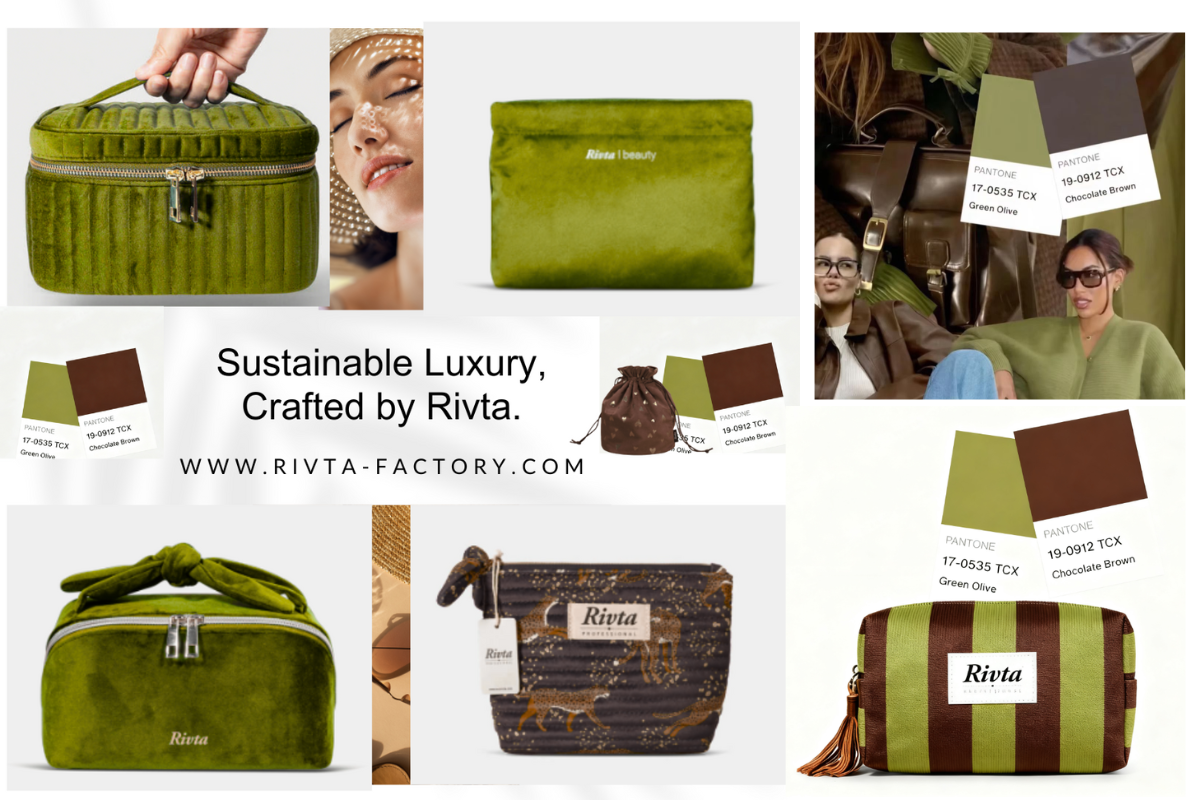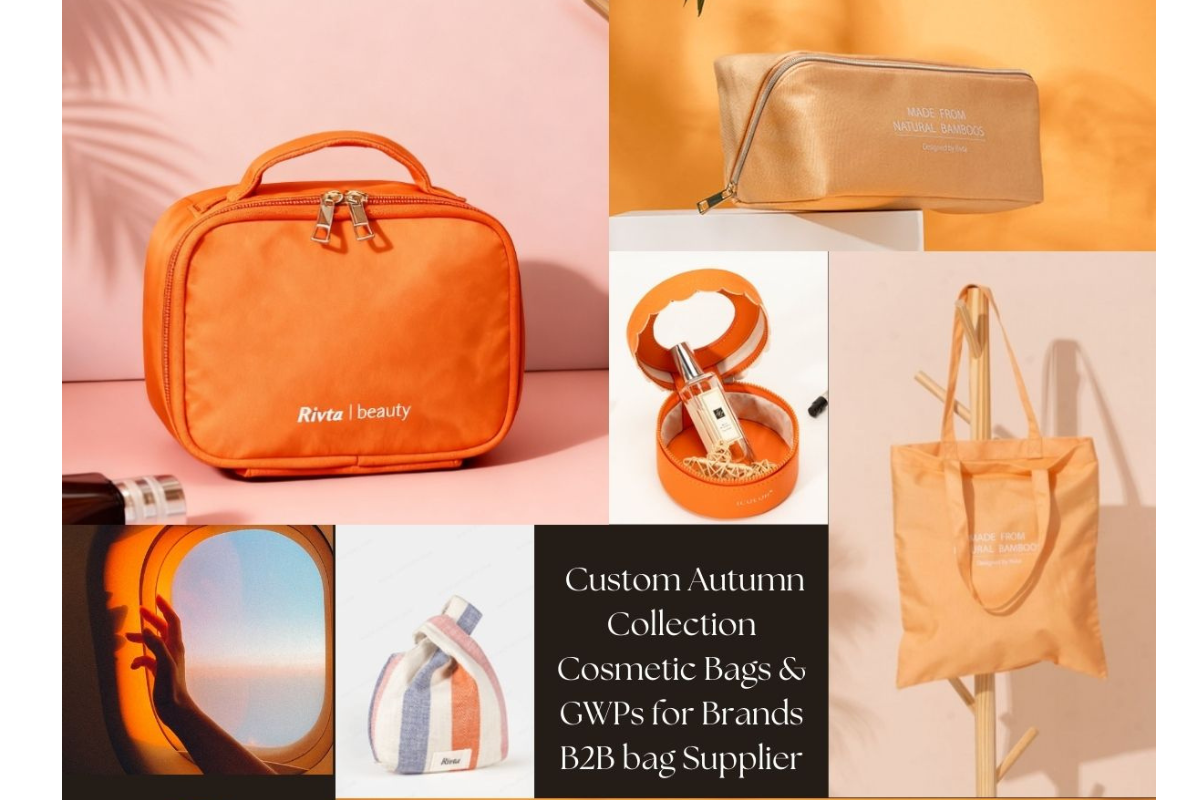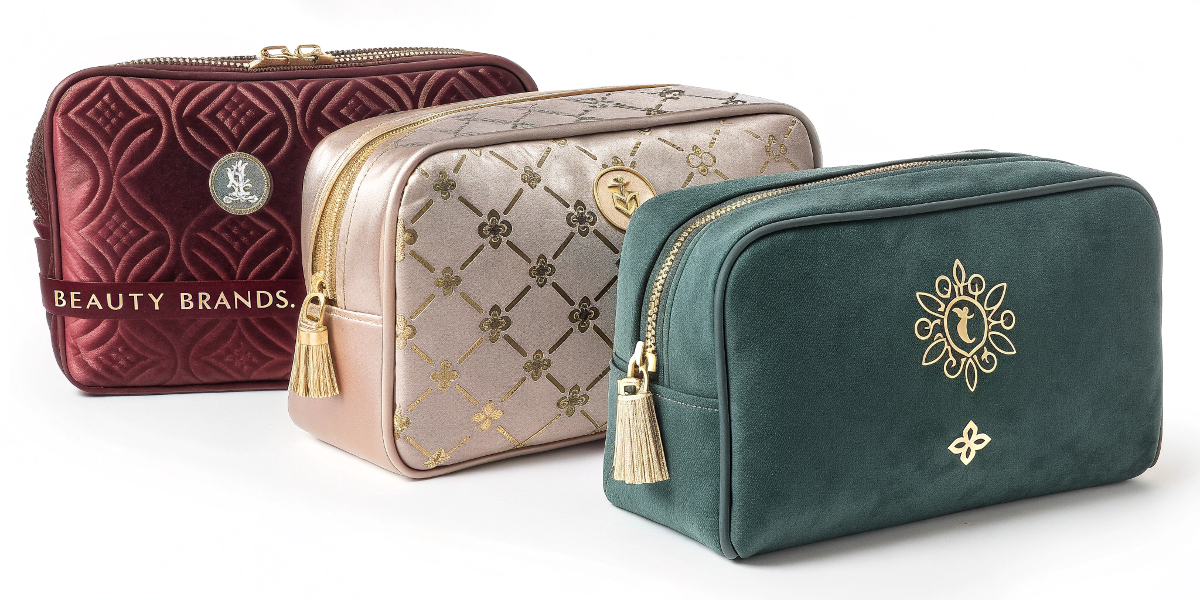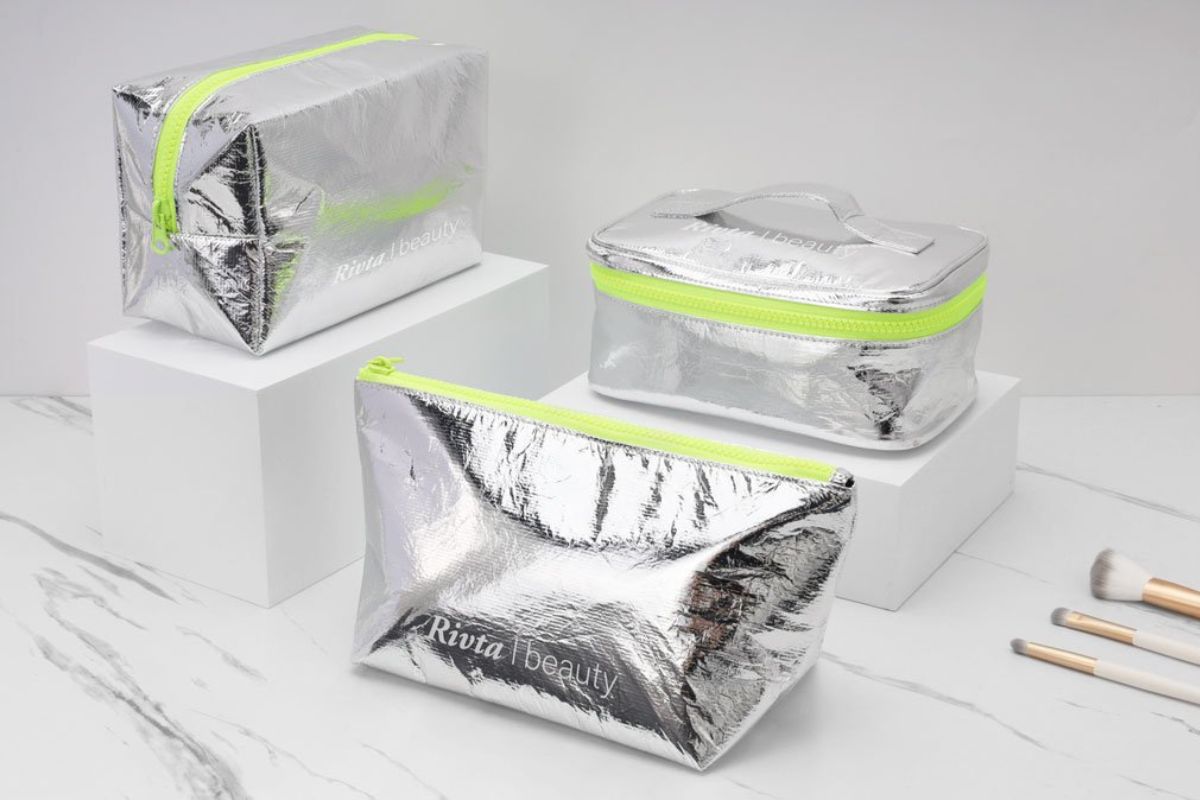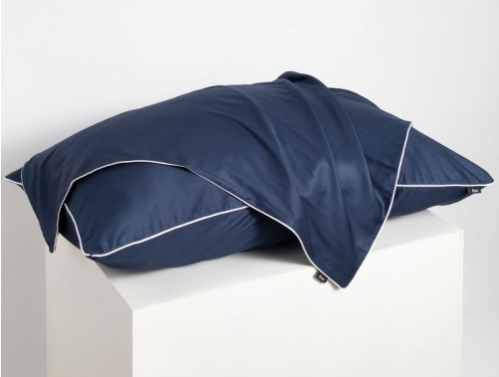Key Factors to Consider When Sourcing Pillowcase FROM CHINA
As the global leader in textile manufacturing, China provides cost efficiency, scalability, and access to innovative, sustainable materials. However, success depends on understanding and managing key factors like quality, cost, supplier reliability, lead times, customization, and regulatory compliance.
At rivta, we specialize in eco-friendly solutions that elevate your brand while meeting consumer demand for sustainability. This guide breaks down the essential considerations for sourcing pillowcases from China, empowering you to make informed decisions that drive growth and align with your values.
Critical Factors to Evaluate
To source pillowcases effectively from China, focus on these six key areas:
1. Material Quality and Manufacturing Excellence
Pillowcases are far more than functional bedding—they’re a powerful expression of style, comfort and brand identity. The material you choose doesn’t just influence feel and durability; it defines which customers you’ll delight and how you’ll position yourself in the market. Below is an expanded look at the most popular fabrics and the consumer niches they serve:
Cotton
Known for its breathability and timeless appeal, cotton pillowcases are a versatile choice that suits a broad market. Their comfort and availability make them a staple for everyday consumers seeking reliable, no-fuss bedding.
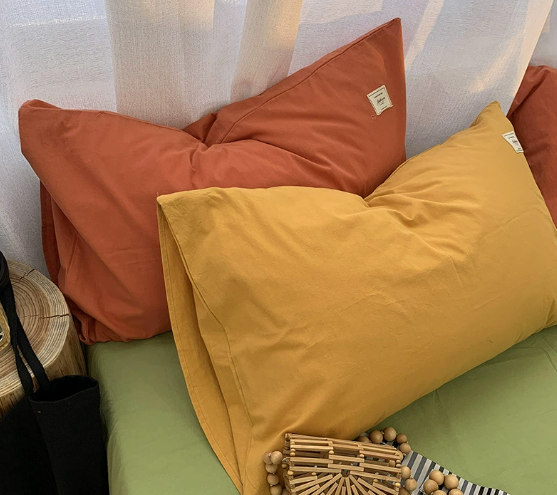
Linen
Durable and naturally textured, linen pillowcases thrive in eco-conscious and craftsmanship-based markets. Their cooling properties make them especially popular in hot climates, attracting consumers who value sustainability and craftsmanship.
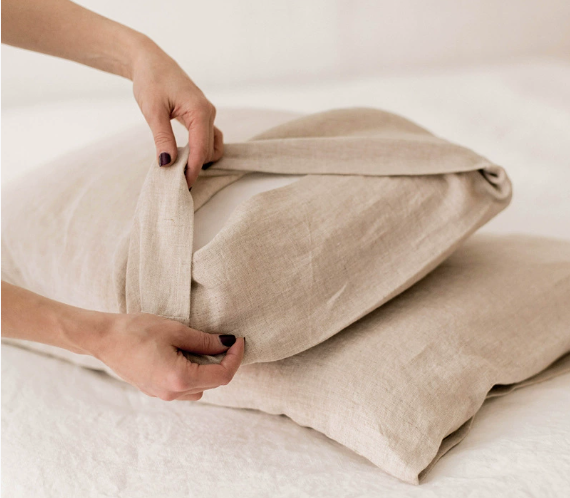
Bamboo-Derived Viscose (Tencel™/Lyocell)
Soft, moisture-wicking, and eco-friendly, bamboo pillowcases draw environmentally aware shoppers. Their natural antibacterial qualities also make them a hit with wellness-focused brands and consumers.
Silk
With its smooth texture and beauty benefits—like reducing hair frizz and skin irritation—silk pillowcases target the luxury market. They appeal to high-end buyers willing to invest in premium bedding for both indulgence and wellness.
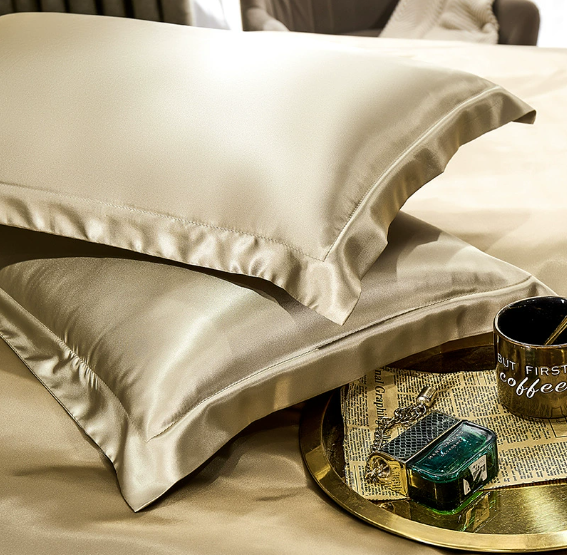
Specialty Blends and Finishes
To carve out a niche, many brands experiment with fabric blends and finishes:
- Cotton/Silk or Cotton/Linen Blends combine durability with luxury feel.
- Sateen Weaves (higher thread counts, lustrous surface) cater to shoppers seeking hotel‑style refinement.
- Cooling “Phase‑Change” Coatings target hot sleepers and active lifestyles.
- Anti‑Allergen Treatments appeal to sensitive or allergy‑prone customers.
Strategic Takeaway
Every fabric choice tells a story. Cotton delivers mass‑market reliability; silk and bamboo speak to beauty and wellness; linen conveys authenticity and sustainability; polyester and microfiber answer the call for budget‑minded practicality. By aligning material attributes—texture, performance, price—with your target audience’s values, you’ll not only meet expectations but also create a differentiated product that resonates in a crowded marketplace. When sourcing pillowcases, match your design, packaging and marketing strategy to the intrinsic qualities of your chosen fabric to maximize both appeal and profitability.
2. Total Cost Analysis
- Production Savings
- Labor and raw material efficiencies can reduce costs by up to 30%.
- Logistics & Duties
- Sea freight (25–45 days) versus air freight (7–12 days) and their cost trade-offs.
- U.S. import tariffs ranging from 10–25%, plus handling fees.
- Value of Sustainability
- While eco-certifications (e.g., GOTS, OEKO-TEX) may add 10–20% to costs, they can command 15–25% higher retail prices.
Pro Tip: Model scenarios that include sample production runs, shipping, customs, and certification fees to understand your true landed cost.
3. Supplier Reliability
- Rigorous Vetting
- Verify certifications (GOTS, OEKO-TEX, Fair Trade).
- Check factory audits and social-compliance reports.
- Transparent Communication
- Insist on bilingual project management and regular progress updates.
- Use platforms like Alibaba, Global Sources, or direct referrals to assess reputation.
- On-site Verification
- Conduct third-party inspections or factory visits to confirm labor and environmental standards.
Case Study: A maternal-and-infant startup partnered with a GOTS-certified supplier in Zhejiang Province, securing organically grown cotton pillowcases that passed rigorous safety tests—boosting customer trust and repeat purchases.
4. Lead Time Management
Accurate forecasting and buffer planning prevent stockouts:
- Production Windows: 30–60 days (standard order)
- Shipping Durations:
- Sea freight: 25–45 days
- Air freight: 7–12 days (premium cost)
- Seasonal Delays: Chinese New Year and Golden Week can add 2–3 weeks of downtime.
Strategy: For a November holiday launch, place orders by July–August to accommodate production, certifications, and shipping.
5. Customization and Branding
Distinctive designs and packaging can set you apart:
- Fabric Treatments: Water‑repellent coatings on recycled polyester for outdoor pillowcases.
- Branding Elements: Embroidery, woven labels, jacquard patterns, or heat‑transfer prints.
- Sustainable Packaging: Compostable bags, recycled cartons, or minimalist, plastic‑free wraps.
Example: An essential‑oils company ordered organic‑cotton pillowcases imprinted with lavender motifs and shipped them in biodegradable drawstring pouches—delighting customers and reinforcing its wellness positioning.
6. Regulatory Compliance
Navigating import and safety regulations ensures smooth market entry:
- Labeling Requirements:
- U.S.: Fiber‑content, care instructions, and country of origin.
- EU: REACH compliance for chemical safety.
- Eco‑Claims Verification:
- Secure third‑party certifications to substantiate “organic,” “recycled,” or “chemical‑free” claims.
- Maintain documentation for customs and marketing audits.
Tip: Engage a customs broker or compliance consultant to prepare accurate commercial invoices, bills of lading, and testing reports.
Visualizing the Key Factors
Here’s a table summarizing the considerations:| Factor | Why It Matters | Actionable Step | Target Audience Focus |
|---|---|---|---|
| Quality | Ensures customer satisfaction, brand credibility | Test samples, check certifications | Product Directors, Buyers |
| Cost | Balances affordability with value | Compare total costs, negotiate terms | CEOs, Founders |
| Supplier Reliability | Reduces risks, ensures consistency | Audit suppliers, verify credentials | Buyers, Trade Companies |
| Lead Times | Meets deadlines, avoids stockouts | Plan 2–3 months ahead, track shipping | Buyers, Product Directors |
| Customization | Differentiates your brand | Specify designs, test prototypes | Product Directors, Founders |
| Compliance | Avoids legal issues, builds trust | Consult experts, secure documentation | CEOs, Trade Companies |
This framework helps prioritize based on your role and industry needs
How Rivta Elevates Your Sourcing Experience
- Sustainable Material Access: Organic cotton, bamboo, recycled polyester—vetted for environmental integrity.
- Audited Supplier Network: Only partners with verified ethical, quality‑focused manufacturers.
- End‑to‑End Customization: From design mock‑ups to final delivery, we handle logistics, quality inspections, and compliance.
- Risk Mitigation: Price‑lock agreements, pre‑shipment inspections, and live shipment tracking mitigate cost fluctuations and delays.
Our Eco Excellence Award 2022 underscores our commitment to innovation and responsible sourcing.
Overcoming Sourcing Challenges
- Cost Fluctuations: We lock in prices for 120–180 days, shielding you from market shifts.
- Quality Risks:Pre-shipment inspections guarantee consistency.
- Delays:Our logistics team tracks every step, ensuring on-time arrivals.
With Rivta, you mitigate risks and maximize value.
The Long‑Term Strategic Advantage
Sourcing pillowcases from China is more than a cost play—it positions your brand at the forefront of sustainable textiles. With the global eco‑textiles market projected to reach $160 billion by 2026, strategic partnerships with the right suppliers can unlock growth, enhance brand equity, and meet evolving consumer expectations.
Ready to Elevate Your Brand with Eco‑Friendly Pillowcases?
Partner with Rivta to source smarter. Contact us https://rivta-factory.com/contact today and let’s craft high‑quality, sustainable pillowcases that resonate with your customers and drive your business forward.
